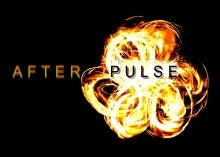The Greatest

I had forgotten my intention to write a piece for this special issue, even though my partner and I had workshopped our submission extensively while driving home from Oregon. We had taken a weekend trip to clear our minds and visit another lesbian couple. Upon return, we had to get back to our careers; we had more "serious" publications to work on.
But perhaps I was too tired to keep focusing on tragedy, too tired to explain that all lives don’t matter until black and brown lives matter. Perhaps I was too scared to confront the dark truths that Pulse reveals about our modern world as I prepare to marry a queer person of color. Perhaps feeling a pressure to capture Pulse in a scholarly and articulate way dampened my motivation to write about it at all. My partner, a psychotherapist, and I had, after all, intended to write something to the effect of: “Trauma and musical tradition: linking music and mental health.”
Then my teenage cousin, freshly out of the closet, wrote me a text message.
Have you heard “The Greatest” by Sia?
No. send me a link?
She made the music video into a tribute to the Orlando victims. It's a really good song and the choreography is cool.
I watched the video.
I was numb.
I study the psychological effects of music but I could not find the right words to talk about this.
The dancers were 49 children in order to truly bring home that the victims were someone's children.
In that moment I wanted the perfect words for my cousin that would allow us to connect, to dig deep and find some meaning in the tangle of outrage, sadness, confusion, and fear that we both felt. I thought about a friend whose forearm is now tattooed with a pulse waveform. Perhaps this expresses something more true than words can. A communal trauma that gets etched into skin, a scar to carry.
I finally wrote,
That’s intense
I thought the conversation was over; I had failed to respond well after she had just shared so much with me.
Have you talked about Pulse with friends?
When one of them started discussing it being a gun issue, I told them it was but at its base it’s a homophobia issue. They questioned why I still have an Orlando Strong lock screen and it's like because it's solidarity. Idk. It's not an easy thing to discuss.
I realized then that I didn’t need to direct our conversation towards any certain resolution. I needed to stay engaged in the shared process of carrying this pain that is bound to our identities, to not be complacent.
We don’t have the words to shore each other up but we have music.
I quickly typed to her,
There’s a call for articles about Pulse and music that I was thinking about submitting to.
Sounds awesome! I would love to read it when you're done.
So proud!
And then I started writing.





